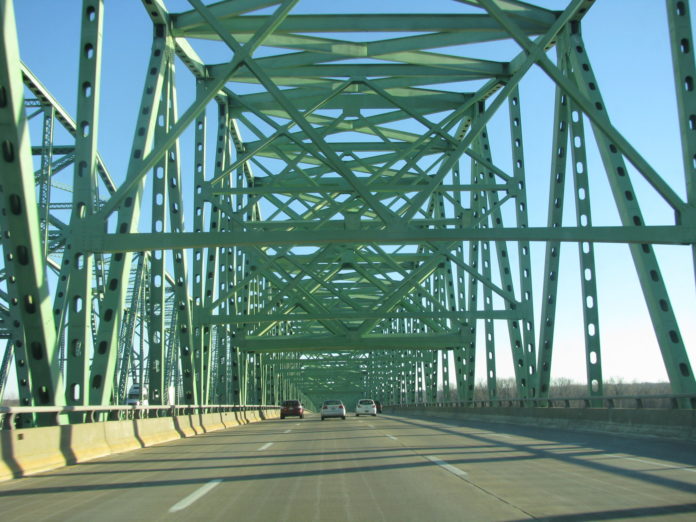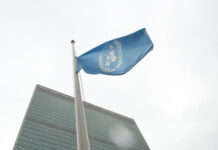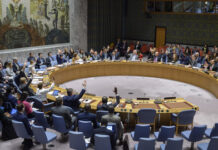Photo Credit: Global Diaspora News (www.GlobalDiasporaNews.com).
By Lucy Westcott/CPJ Emergencies Director
Threats, repression, conflict, and unrest: across the world, these and other factors are pushing journalists into exile in record numbers. In a striking development, exiled or soon-to-be exiled journalists now make up more than half of the people CPJ assists. Between January and June 2024, CPJ provided financial support to 158 journalists; 101, or about 64% of these people had fled their home countries or were in the process of fleeing from countries such as Myanmar, Nicaragua, and Sudan. Overall, CPJ’s exile support to members of the press grew by 227% between 2020 and 2023.
These figures demonstrate the dire needs of journalists in exile, and the bitter reality that exile is not the end of a journalist’s problems but in many cases just the beginning.
Unless journalists have dual citizenship, preexisting visas, or the ability to acquire an emergency visa, they may have to remain in a transit country while seeking permanent resettlement to a third country, a process that can take months or years. Many transit countries have poor press freedom records, leaving exiled journalists vulnerable to further harm. But even those who make it to “safe” countries aren’t really safe; many face transnational repression as authorities in their countries of origin continue to issue threats and target family members back home.
Some countries of refuge are undergoing democratic backsliding, with implications for the exile and local press. Though Georgia doesn’t have a formal emergency visa scheme for journalists, it has emerged as a hub for exiled media, including journalists from Azerbaijan and Kyrgyzstan, two Central Asian countries where governments are tightening their grip on the press. In 2024, CPJ supported 23 journalists who fled to Georgia or were planning to flee there. But now, Georgia faces a deepening national crisis following the passing of a Russia-inspired “foreign agent law” that threatens to stifle the media.
Since the creation of CPJ’s Journalist Assistance Program in 2001, the single most common request for support is emergency relocation. Most journalists do not want to leave their home countries, but in extreme cases involving imminent harm, death, or arbitrary detention, they must do so quickly, sometimes in a matter of hours. Yet there are few mechanisms to support journalists who must flee within a narrow window of time, despite the efforts of a handful of members of the Media Freedom Coalition, a group of countries committed to promoting media freedom at home and abroad. CPJ has long advocated for specific steps that governments can take to provide safe refuge through emergency visas and other measures to protect journalists fleeing as a consequence of their work. There is a growing consensus among the international community that the global wave of aggression forcing journalists to flee must be met with a targeted and dedicated response: a recent report by the U.N. Special Rapporteur on freedom of expression, to which CPJ contributed, describes the plight of journalists on the run and the perils they face as well as detailed recommendations for governments, civil society, and U.N. bodies to help journalists.
While exile is a global issue, three countries — Russia, Iran, and Afghanistan — stand out as places from which journalists flee only to face further insecurity. Below, find case studies on each country:
Russia
Even before Russia’s full-scale invasion of Ukraine in February 2022, Russian journalists were fleeing repression at home. The phenomenon has only accelerated with the war, as Russia passed restrictive laws on press coverage and imprisoned journalists who dared to cover the conflict. In 2023, CPJ supported 74 Russian journalists in exile in Latvia, Georgia, and other European countries, underscoring the fact that journalists continue to need help even after they have settled in a supposedly safe and supportive place.
Russian journalists in exile face high levels of surveillance. In September 2023, CPJ documented how Galina Timchenko, head of Latvia-based independent news site Meduza, was targeted by Pegasus, a zero-click spyware developed by Israeli company NSO Group and how two exiled Russian journalists in Latvia, Evgeniy Erlich and Maria Epifanova, as well as Latvian journalist Evgeniy Pavlov, received notifications from Apple saying their phones had been hacked by “state-sponsored hackers.” A May 2024 report from Access Now and Citizen Lab found that at least five journalists, including Erlich and Epifanova, were targeted with Pegasus spyware. And two Russian journalists in exile were allegedly poisoned in Germany and Georgia in 2022. CPJ has provided trauma support to exiled Russian journalists who face mental health challenges as they cover conflict and high-risk stories while navigating threats and surveillance.
Russian authorities use another tactic to silence the exiled press by charging and trying them in absentia in an attempt to discredit their work. In May 2024, Russian authorities initiated legal proceedings against Timchenko on the charges of participating in an “undesirable organization.” (Meduza was declared “undesirable” in 2023, effectively banning the news outlet and putting its journalists at risk of legal action.) Russia is also criminalizing journalism in exile through its foreign agent law, with authorities declaring members of the press “foreign agents” and issuing fines or filing charges against those who don’t apply the label to their news outlets or meet other burdens. Similar laws are being passed globally, putting even more journalists at risk.
Iran
Iran, one of the world’s top 10 jailers of journalists in 2023, is a country from which journalists flee, but also a country to which some journalists, including many from Afghanistan, have fled. A violent and sustained crackdown on the press in 2022 following the death of a young woman, Mahsa Amini, in morality police custody, compounded the already repressive environment for the media in Iran. Journalists there face numerous push factors to flee: raids on their newsrooms, lengthy pretrial detention, and arrest. Over the past four years, CPJ has provided exile and relocation support to 19 Iranian journalists who moved to Turkey, Pakistan, Georgia, and several European countries.
For journalists fleeing Iran, options for safe refuge are limited. One of the main relocation countries, Turkey, is an unsafe environment and also featured in CPJ’s list of the 10 worst jailers in 2023. Turkey is also a refuge for journalists fleeing Afghanistan, Syria, and Iraq, but many remain stuck in limbo there, often for years, without the ability to work legally as they wait for visas to safer countries.
The threat of forced deportation looms: In 2019, Turkish intelligence agents arrested an Iranian journalist who was a registered refugee with the U.N. and extradited him to Iran, where he was ultimately imprisoned. (Iran and Turkey had recently strengthened their cooperation in border security and law enforcement.) One Iranian journalist in Turkey described life in exile in a 2021 interview as “filled with fears and concerns.”
Even in “safe” countries, Iran’s journalists face threats to their lives. In April 2024, Iran International journalist Pouria Zeraati was stabbed outside of his home in London. The latest in a wave of cross-border attacks, Zeraati’s targeting comes after a plot to assassinate two other Iran International news anchors in London—Sima Sabet and Fardad Farahzad—was uncovered late last year. In 2021 in the United States, the FBI uncovered a plot to kidnap Iranian journalist Masih Alinejad. The families of exiled Iranian journalists are also routinely targeted in Iran.
Afghanistan
Options for Afghan journalists fleeing their country’s violent crackdown on the media are limited. Hundreds of journalists have left Afghanistan in the three years since the Taliban retook control of the country in 2021 and began attacking and imprisoning members of the press. Since the Taliban takeover, CPJ has assisted more than 100 Afghan journalists with exile and relocation support.
Afghan journalists typically have a hard time acquiring visas to safe countries, most often fleeing to bordering Pakistan and Iran, which offer little support, safety, or opportunity for resettlement. Pakistan, like Iran, is an unsafe environment for the press as Pakistani journalists are currently facing a fresh wave of violence. CPJ documented shooting attacks on three journalists in two separate incidents in May, which followed the killing of four Pakistani journalists that month, the highest number of journalists killed in the South Asian country in any single month since CPJ began collecting data in 1992.
In April, exiled journalist Ahmad Hanayesh, who owned two radio stations in Afghanistan before he fled to Pakistan, was shot by two gunmen on a motorcycle, sustaining injuries to his head and foot. Journalists who fled from Afghanistan to Pakistan after the 2021 Taliban takeover routinely face hunger, lack of work opportunities, and the threat of deportation as visas expire with no way to renew them.
As the Taliban continues its crackdown on the country’s media, shutting down broadcasters and detaining radio journalists for playing music and talking to female callers, Afghans are traveling thousands of miles to escape death, violence, and repression. Afghans have even tried to traverse the dangerous Darién Gap, which connects North and South America, to try to find safe refuge in the U.S. Afghanistan is also a top-seven country of origin for refugees crossing the English Channel in small boats, according to the U.K. Refugee Council.
Until more safe pathways out of immediate danger are established, more emergency visas are made available, and harbor countries take the threat of transnational repression seriously, exiled journalists will continue to make dangerous journeys, and will likely continue to face threats once they reach what should be a place of safety.
Source of original article: Middle East & North Africa Archives – Committee to Protect Journalists (cpj.org).
The content of this article does not necessarily reflect the views or opinion of Global Diaspora News (www.GlobalDiasporaNews.com).
To submit your press release: (https://www.GlobalDiasporaNews.com/pr).
To advertise on Global Diaspora News: (www.GlobalDiasporaNews.com/ads).
Sign up to Global Diaspora News newsletter (https://www.GlobalDiasporaNews.com/newsletter/) to start receiving updates and opportunities directly in your email inbox for free.
































